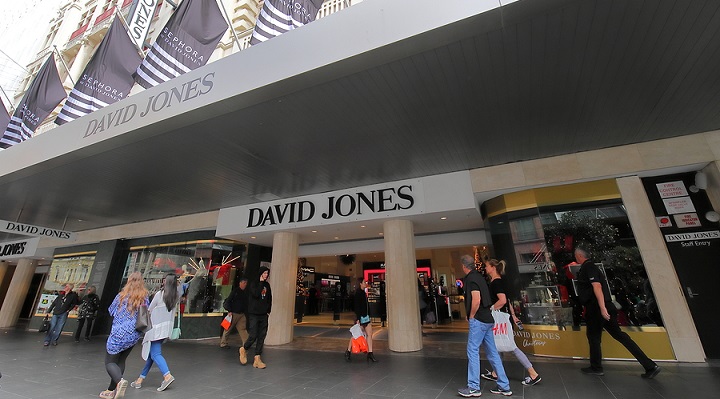
A fundamental question about the future of David Jones was put to rest this week, after the retailer’s parent company Woolworths Holdings announced the sale of the department store chain to Australian private equity firm Anchorage Capital Partners on Monday.
While the sum was not disclosed, The Australian cited sources close to the transaction who put the figure at around $100 million.
That is a fraction of the $2.1 billion that Woolworths Holdings paid for the business in 2014, though the sale to Anchorage does not include David Jones’ recently revamped Bourke Street flagship store, which is valued at around $250 million.
Still, some other key questions about the sale remain unanswered. For instance, is the turnaround of David Jones more or less likely to succeed under its new owners? How involved will Anchorage be in the management of David Jones going forward? And what does success actually look like in a sector that is shrinking?
Cautionary tale
Brian Walker, founder and CEO of The Retail Doctor, believes Myer’s previous brush with private equity serves as a cautionary tale of what could be in store for David Jones under Anchorage’s ownership.
“When TPG bought Myer as a venture capitalist, they went out to the market, they talked growth, they expanded Myer considerably, […] they attracted lots of investors in that early window and then [they took] money out of the company,” he told Inside Retail.
“The question is, what will Anchorage do? Will they do what venture capitalists have historically done, which is to strip it out, inflate the tyres and then flog it? Or will they be there for the longer haul, trade through it and try to grow David Jones as it once was?”
Walker noted that Anchorage has said it is committed to supporting David Jones CEO Scott Fyfe and his turnaround plan, which involves investing in stores and the customer experience.
“That’s the rhetoric that’s coming out, and you’d expect that,” Walker said. “I think the next five years is the inflection period. It’ll either be resized into a chic department store business with an online supporting portfolio, or who knows? I’m not sure what will happen.”
Strong track record
David Jones isn’t Anchorage Capital Partners’ first foray into the retail industry. In 2014, the firm bought a then-unprofitable Brand Collective from Pacific Brands.
On its first day of ownership, Anchorage immediately approved the acquisition of Shoes & Sox, a children’s footwear chain that the Brand Collective management team had long been eyeing, and the rollout of a new backend ERP system.
Over the next eight years, Brand Collective grew into a $280 million retailer, which Anchorage sold to Larry Kestelman’s private equity firm LK Group in July for an undisclosed sum.
At the time, Caleb Brown, then-CEO of Brand Collective, credited Anchorage with turning “an unloved, unprofitable, orphan company within a large public company” into “a really good business with great potential”.
A spokesperson for Anchorage seemed to reference this in a statement about the firm’s acquisition of David Jones, citing its “successful track record of executing complex carve-outs”.
“We look forward to leveraging our deep industry expertise, hands-on approach with management, and continued investment to drive key initiatives to grow the business and deliver sustainable future performance,” the spokesperson said.
However, Anchorage has also drawn criticism for its role in the collapse of Australian electronics chain Dick Smith, which it bought from Woolworths Group – the Australian supermarket giant – in 2012 and floated on the ASX in 2013. The retailer later fell over in 2016, owing $260 million to creditors.
Anchorage has repeatedly stated that Dick Smith was in a strong financial position with no debt when it exited the business in 2015, but Walker believes the debacle exemplifies a broader trend.
“If you look at the collapse of businesses under venture capital, they haven’t got an enviable record. They’re not seen as particularly friendly. They have a reputation for being quite predatory, which may be unreasonable,” he said.
“Statistically speaking, something like 70 per cent of businesses acquired by venture capitalists don’t see the distance out.”
Growing in a shrinking market
A much bigger challenge for David Jones than the track record of venture capital in retail may be the rise of online shopping and changing demographics, two factors that have contributed to the decline of department stores around the world in recent years.
“I don’t think the rough years that David Jones has had is particularly unique to them as a business. Rather it’s an overall theme we’re seeing play out within the department store landscape,” Trent Rigby, co-director of Retail Oasis, told Inside Retail.
“The inherent department store model is under increasing pressure, not just in Australia but globally. We’ve seen a general consumer trend away from department stores.”
To compete with a new generation of pureplays and stay relevant to today’s consumers, Rigby said David Jones will need to improve its online offer and reduce its store network.
“The challenge will be to reduce footprint either through closures or reducing store size, which I imagine would be difficult as many of their stores have long lease terms,” he said.
One thing David Jones has going for it is its brand heritage and premium positioning in the Australian market.
“David Jones still remains one of the most respected department stores in Australia,” Rigby said. “Anchorage would be looking at utilising this brand heritage.”

